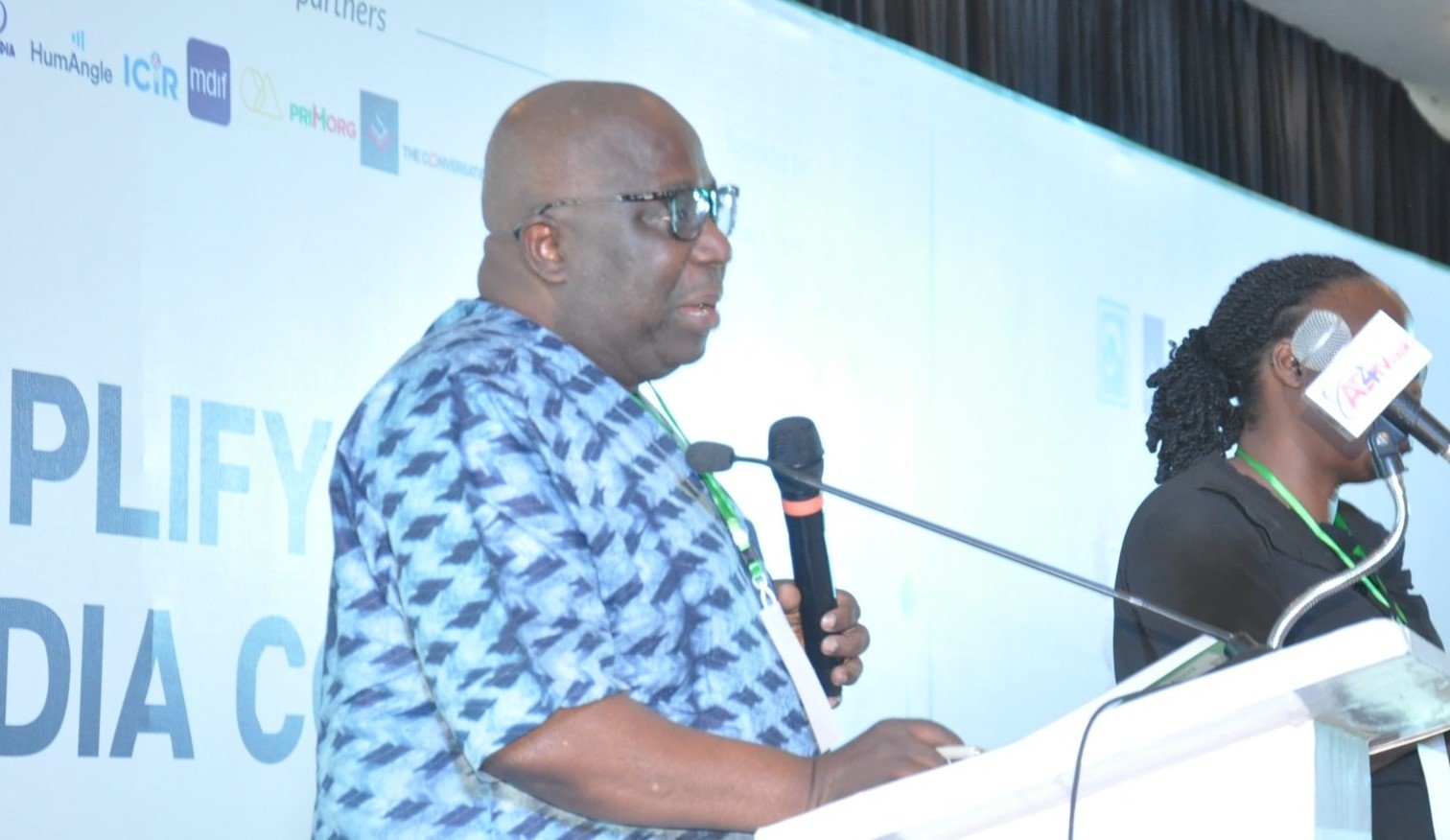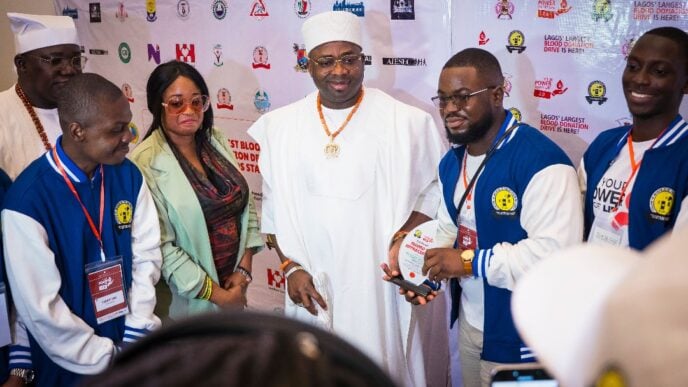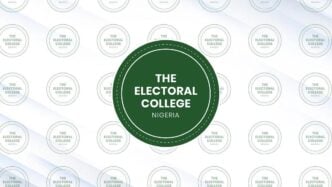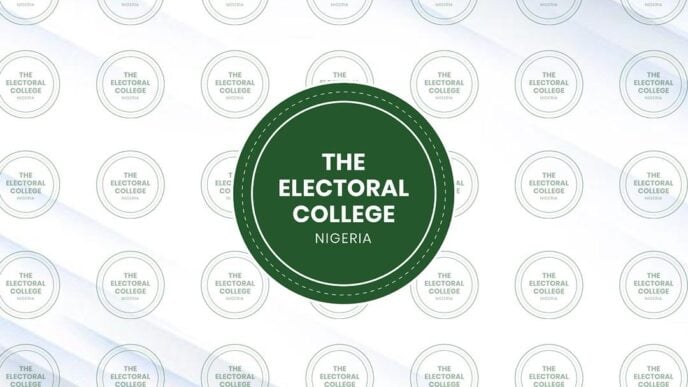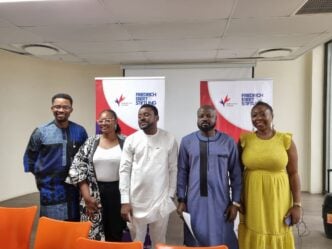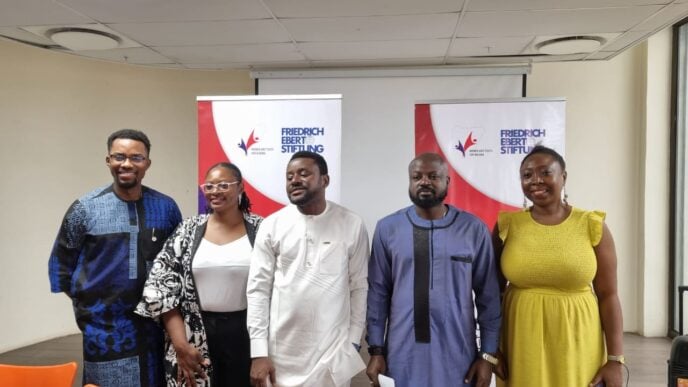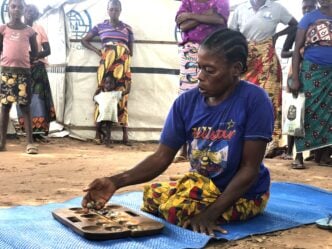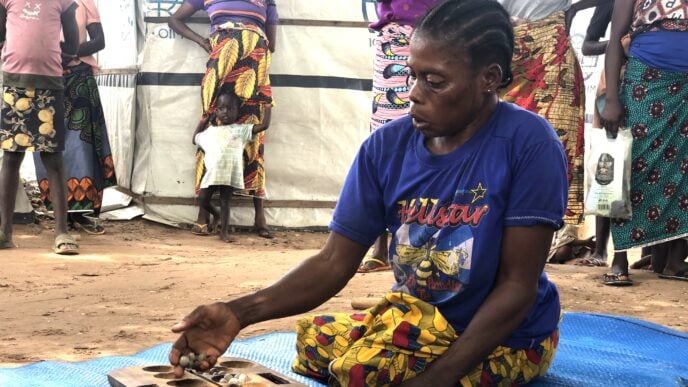Dapo Olorunyomi, veteran journalist and publisher of Premium Times, says good journalism is the lifeline of democracy.
Olorunyomi spoke at the recent virtual onboarding event of Development Reporting’s (DevRep) editorial and technical advisors, where he delivered a lecture titled “The Democracy–Journalism Interface”.
He urged journalists to recommit to the values of accountability, transparency, and justice.
Olorunyomi praised DevRep’s vision, describing it as “a great promise of what we always hope that great reporting will try to do.”
Advertisement
“At every time that we talk of consequential journalism, one is always hoping that it will crest and make society better,” he said.
“We have to salute the dreamers of this endeavour and hope that in spite of all challenges arranged against the enterprise of journalism today, their reporting will not only be successful, but will prevail and give birth to bigger, louder dreams.
The veteran journalist stressed the inseparable link between journalism and democracy, noting that media practitioners must resist the temptation of treating their profession as self-sufficient or isolated from society.
Advertisement
He added that the media is a central component in democracy’s survival.
“At the heart of democracy is the whole question of participation — the whole process of empowerment. And obviously it is the whole question of how we give voices — we enable those voices to move community further,” he said.
According to Olorunyomi, three key roles: accountability, agenda setting, and gatekeeping, make journalism indispensable to democracy.
“When you can’t ensure accountability, democracy itself is endangered,” he noted.
Advertisement
“The media amplifies priorities…things government must pay attention to. And the gatekeeping role ensures information integrity becomes the norm.”
Addressing the current global challenges of disinformation and democratic decline, he described both journalism and democracy as undergoing an unprecedented crisis simultaneously.
“At a time of journalism troubles — disinformation, the channel crisis — and that of democracy itself, with democratic retreat, we really have to pay a lot of attention to how to rebuild journalism back to the key principles if we really want to help make meaningful democratic practice and, without question, meaningful and substantive development efforts,” he said.
DEVREP’S VISION, ADVISORY TEAMS UNVEILED
Advertisement
Also speaking at the session, Mojeed Alabi, team lead and editor-in-chief (EIC) at DevRep, said the initiative was born out of necessity to ensure journalism goes beyond news gathering to impact humanity.
Alabi said DevRep was established to focus on neglected stories and distinguish itself in an era where “200 megabytes can make anyone a journalist”.
Advertisement
“To achieve this, the organisation is running four projects: development cinema, development check, development cast, and development statistics (DevStats),” he said.
Alabi noted that development cinema would use documentaries to tell stories on issues like health, gender, and labour, while development check would fact-check claims on development-related topics.
Advertisement
Development cast, he said, is designed to give the public access to stakeholders, and DevStats would interrogate data that is often quoted without context.
He thanked the board, advisers, and technical partners for supporting DevRep through its early stages, noting that the platform has recorded over 80,000 appearances on Google search and up to 14,000 views on some stories in just four months.
Advertisement
The onboarding also featured the unveiling of DevRep’s advisors and governance team.
On the editorial side, the platform welcomed Olorunyomi; Bimbo Oloyede, veteran broadcaster; Toun Okewale-Sonaiya, chief executive officer of Women Radio 91.7FM, and Ayodele Ojo, chief executive officer of The Star Newspapers.
For technical guidance, DevRep onboarded Lola Ayanda, network communications manager at Moving Minds Alliance; Noimot Balogun, a medical practitioner and communications expert; Akeem Akinniyi, copy editor at Integrated Indigo; Oba Adeoye, multimedia expert; and Tobi Fayelu, executive director of Distinct Right Media.
To provide oversight and accountability as ombudsmen, the platform enlisted Lanre Arogundade, executive director of the International Press Centre (IPC); Lekan Otufodunrin, executive director of the Media Career Development Network; Motunrayo Famuyiwa-Alaka, executive director of the Wole Soyinka Centre for Investigative Journalism (WSCIJ); and Mike Kebonkwu, partner at Koyen-Hi Kebonkwu Chambers.
The editorial board was also expanded with the addition of academics such as Ismail Ibraheem, professor at the University of Lagos; Taibat Lawanson, professor at the University of Liverpool; Shuaib Iwasa, professor at Erasmus University Rotterdam, Netherlands; and Chijioke Uwasomba, professor of literature at Obafemi Awolowo University.
